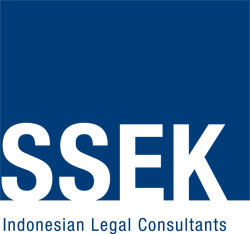In an effort to bolster international trade, the Government of Indonesia recently ratified two free trade agreements. It ratified the Regional Comprehensive Economic Partnership (“RCEP”) agreement with the enactment of Law No. 24 of 2022 regarding the Ratification of RCEP (“Law 24/2022”), and it ratified the Comprehensive Economic Partnership Agreement Between the Government of the Republic of Indonesia and the Government of the Republic of Korea (“IK-CEPA”) with the enactment of Law No. 25 of 2022 regarding the Ratification of IK-CEPA (“Law 25/2022”).
Both the RCEP and IK-CEPA aim to eliminate import duty by providing preferential tariffs for signatories to the RCEP and IK-CEPA.
Following the ratification of Law 24/2022 and Law 25/2020 various implementing regulations have been issued. These include Minister of Finance (“MOF”) Regulation No. 209/PMK.04/2022 regarding Procedures for the Imposition of Import Duty on Imported Goods Pursuant to the RCEP (“MOF Reg. 209/2022”), effective as of January 2, 2023, and MOF Regulation No. 219/PMK.04/2022 regarding Procedures for the Imposition of Import Duty on Imported Goods Pursuant to the IK-CEPA (“MOF Reg. 219/2022”), effective as of January 1, 2023.
These implementing regulations have the general goal of making Indonesia a more attractive destination for doing business, for example, by eliminating tariffs on traded goods, increasing opportunities for trade in services, increasing investment opportunities, and increasing programs aimed at economic cooperation and developing human resources.
This article highlights provisions on the imposition of preferential tariffs under MOF Reg. 209/2022 and MOF Reg. 219/2022.
Imposition of Preferential Tariffs Under RCEP and IK-CEPA
In general, preferential tariffs are based on RCEP and/or IK-CEPA rates. The ministerial regulations will determine the import duty within the framework of the RCEP and/or IK-CEPA.
The requirements to obtain preferential tariffs are generally the same under both MOF Reg. 209/2022 and MOF Reg. 219/2022, even though the underlying agreements are different. Under Article 2 (1) of MOF Reg. 209/2022 and Article 2 (1) of MOF Reg. 219/2022, imported goods can receive preferential tariffs that are different from the general import duty. These preferential tariffs can apply for:
a. imported goods for use that utilize an import declaration (pemberitahuan impor barang or “PIB”);
b. imported goods for use that utilize a PIB from a bonded storage area that at the time of entry of the goods obtained an approval for preferential tariffs;
c. imported goods for use that utilize a PIB from a bonded logistics zone (pusat logistik berikat);
d. goods produced in a free trade zone released to other places within the customs area (tempat lain dalam daerah pabean or “TLDDP”), as long as:
i. the goods are raw materials and/or supplementary materials originating from outside the customs area;
ii. at the time of entry of the goods and/or supplementary goods to a free trade zone had obtained approval for preferential tariffs; and
iii. involves business actors in free trade zones that have satisfied the requirements to obtain preferential tariffs;
e. the release of goods from a special economic zone to a TLDDP that at the time of entry of the goods into the special economic zone obtained approval for preferential tariffs.
Procedure to Obtain Preferential Tariffs
For importers to obtain the preferential tariffs the following requirements must be met:
A. Under the RCEP
For importers to obtain preferential tariffs under the RCEP, Article 12 (1) of MOF Reg. 209/2022 stipulates that importers must:
a. deliver an original copy of the proof of origin of the goods/services;
b. attach a RCEP facility code to the PIB; and
c. in the PIB, attach:
i. the reference number and date of the RCEP certificate of origin and/or certified exporter authorization code; and
ii. date of declaration of origin.
For completeness, the proof of origin used as the basis for preferential tariffs shall consist of the RCEP certificate of origin and the date of declaration of origin.
B. Under the IK-CEPA
For the IK-CEPA regime, Article 9 of MOF Reg. 219/2022 stipulates that for importers to obtain preferential tariffs, they must fulfill the following requirements:
a. deliver an IK-CEPA certificate of origin;
b. attach an IK-CEPA facility code to the PIB; and
c. attach the reference number and date of the IK-CEPA certificate of origin.
Note that we only highlighted the general framework for obtaining preferential tariffs under MOF Reg. 209/2022 and MOF Reg. 219/2022. The actual preferential tariffs themselves will be governed by a separate MOF regulation, which at the date of this publication has not been issued.
This publication is intended for informational purposes only and does not constitute legal advice. Any reliance on the material contained herein is at the user’s own risk. All SSEK publications are copyrighted and may not be reproduced without the express written consent of SSEK.

For further information, please contact:
Rusmaini Lenggogeni, Partner, SSEK
rusmainilenggogeni@ssek.com





